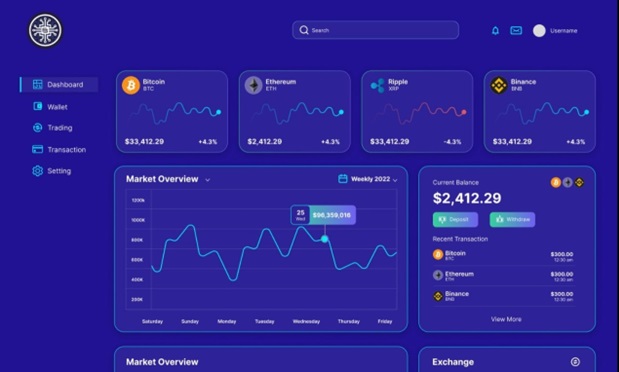ApeCoin (APE) and BinaryX (BNX) have been getting a lot of attention lately, but not for the right reasons. Both projects are terrible investments, and it’s easy to see why they’re falling out of favor.
Meanwhile, Snowfall Protocol (SNW) is selling out its presale with ease! Here’s why you should avoid ApeCoin (APE) and BinaryX (BNX), and invest in Snowfall Protocol (SNW)!
Snowfall Protocol (SNW) is a revolutionary cross-chain transfer ecosystem that allows users to swap assets across the most widely used compatible chains. It offers an easy, secure way to move digital assets from one chain to another, eliminating the tedious and expensive process of exchanging currencies manually.
With Snowfall Protocol (SNW), you can seamlessly and quickly move any asset—fungible or non-fungible—across multiple blockchains.
On the other hand, ApeCoin (APE) and BinaryX (BNX) have been plagued by problems ranging from poor management to substandard products. ApeCoin (APE) has consistently underperformed expectations, while BinaryX (BNX) has failed to innovate, instead relying on its outdated technology and limited use cases.
In contrast, Snowfall Protocol (SNW) is a fresh and innovative project that is attracting the attention of investors worldwide. With its secure and reliable platform for cross-chain transfers, Snowfall Protocol (SNW) is revolutionizing the way we move digital assets between different blockchains.
By investing in Snowfall Protocol (SNW), you can be sure your money will be safe from ApeCoin (APE) and BinaryX’s (BNX) lackluster performance.
So don’t waste your time or money on ApeCoin (APE) or BinaryX (BNX). Instead, invest in Snowfall Protocol (SNW) and join the revolution! Snowfall Protocol (SNW)’s presale is selling out fast, so don’t wait any longer—get in now and start enjoying the benefits of cross-chain transfers!
Presale: https://presale.snowfallprotocol.io
Reaching New Heights By Accomplishing Innovation
As mentioned earlier, ApeCoin (APE) and BinaryX (BNX) are failing to innovate and keep up with the changing times. Snowfall Protocol (SNW) is different—it has accomplished innovation, reaching new heights in a short amount of time.

Since its launch, Snowfall Protocol (SNW) has seen a growth of more than 250%, with the price now standing at $0.075. Stage 2 of the project sold out one day early, and stage 3 is now officially underway. A prototype for its dAPP has already been announced, and it looks like a 1000x increase is coming soon!
BinaryX (BNX) and ApeCoin (APE) Will Lose More Value!
The trend is obvious. Snowfall Protocol (SNW) keeps reaching new all-time highs while both these other tokens are continuing to lose value. Snowfall Protocol (SNW) is like how the internet connected the world, and this will improve the entire crypto industry.
So, make sure to get in now because the third stage of presale will sell out quickly. Losing out on this investment opportunity would be a huge mistake!
Website: https://snowfallprotocol.io
Presale: https://presale.snowfallprotocol.io
Telegram: https://t.me/snowfallcoin
Twitter: https://twitter.com/snowfallcoin









